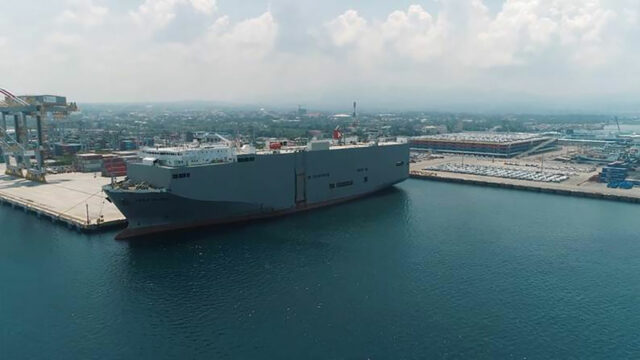DMAP’s DigiCon 2024 to lead Philippines’ digital transformation ‘REVOLUTION‘
The Digital Marketing Association of the Philippines (DMAP), the country’s center of excellence and innovation in digital marketing, will take center stage in spearheading the movement towards mastering the digital landscape when it hosts the ninth edition of the annual Digital Congress (DigiCon), with the theme, “REVOLUTION,” on Oct. 15 to 16, 2024, in Newport City, Metro Manila.
DMAP’s DigiCon REVOLUTION 2024 is sponsored by Unionbank of the Philippines, Unilever, Blis, KFC, Anymind Philippines, and in partnership with Dentsu Creative Philippines, HIT Productions, and Uniquecorn Strategies.
Esteemed outlets ABS-CBN Corp., GMA New Media, Inc., MBC Media Group, Inc., The Philippine Star, Manila Bulletin, BusinessWorld, Rappler, adobo Magazine, One Mega Group, Inc., Certified Digital Marketer, The Pod Network Entertainment, Cignal TV and PumaPodcast serve as this year’s media partners.
The Philippines’ major annual digital convention will delve into groundbreaking trends and technologies poised to reshape the digital landscape in the country and globally.
The event will gather over 2,000 participants, including global and local industry experts, thought leaders, and technology pioneers, offering key insights to professionals across marketing, advertising, business, academia, media, and innovation sectors.
Steven Johnson, Editorial Director at Google’s AI division Google Labs and the co-creator of NotebookLM, will headline DigiCon 2024 as the keynote speaker. With his background and expertise in innovation, Mr. Johnson will share insights on harnessing the next wave of digital transformation.
 Attendees will have the opportunity to learn, interact, and collaborate through five focused tracks: ‘From Ecommerce to Digitally Enabled Commerce’ (Ecommerce), ‘From IMC to Customer-Centric Campaigns’ (Brand Building in AI Age), ‘From Digital Transformation to Business Evolution’ (Digital Transformation), ‘From Data Driven to Insight Driven’ (Analytics RPA and Data Science), and ‘From I to AI’ (Innovation Labs on AI). These tracks, along with various practical and immersive activities, aim to provide a road map for leveraging rapid digital changes, equipping attendees with tools and insights for digital agility and continuous learning.
Attendees will have the opportunity to learn, interact, and collaborate through five focused tracks: ‘From Ecommerce to Digitally Enabled Commerce’ (Ecommerce), ‘From IMC to Customer-Centric Campaigns’ (Brand Building in AI Age), ‘From Digital Transformation to Business Evolution’ (Digital Transformation), ‘From Data Driven to Insight Driven’ (Analytics RPA and Data Science), and ‘From I to AI’ (Innovation Labs on AI). These tracks, along with various practical and immersive activities, aim to provide a road map for leveraging rapid digital changes, equipping attendees with tools and insights for digital agility and continuous learning.
This year’s DigiCon will feature a unique multi-venue setup within Newport City, offering a comprehensive and immersive experience. Plenary talks will be held at the Newport Performing Arts Theater, while breakout sessions will take place at the nearby Sheraton and Hilton hotels. International and local speakers will share insights and trends through keynotes, master classes, and workshops, creating an unparalleled DigiCon 2024 experience.
“DigiCon REVOLUTION is more than just an event, but a platform for digital professionals to stay ahead in this rapidly evolving industry. Through our master classes, DigiCon REVOLUTION equips you with the essential skills and knowledge needed not only to keep up with the fast-paced digital revolution but to thrive through it. Attendees will gain access to insightful conversations, cutting-edge digital knowledge, and an unparalleled network of industry professionals and companies. No other digital marketing conference in the Philippines offers this level of connectivity,” said DigiCon REVOLUTION 2024 Co-Chair Alan Fontanilla.
 Since its first iteration in 2016, DigiCon has consistently been a pivotal gathering for the luminaries of Philippine marketing, advertising, and digital landscapes.
Since its first iteration in 2016, DigiCon has consistently been a pivotal gathering for the luminaries of Philippine marketing, advertising, and digital landscapes.
To secure your slot and learn more about DMAP‘s DigiCon REVOLUTION 2024, you may visit https://www.digicon.com.ph/.
Spotlight is BusinessWorld’s sponsored section that allows advertisers to amplify their brand and connect with BusinessWorld’s audience by publishing their stories on the BusinessWorld Web site. For more information, send an email to online@bworldonline.com.
Join us on Viber at https://bit.ly/3hv6bLA to get more updates and subscribe to BusinessWorld’s titles and get exclusive content through www.bworld-x.com.























